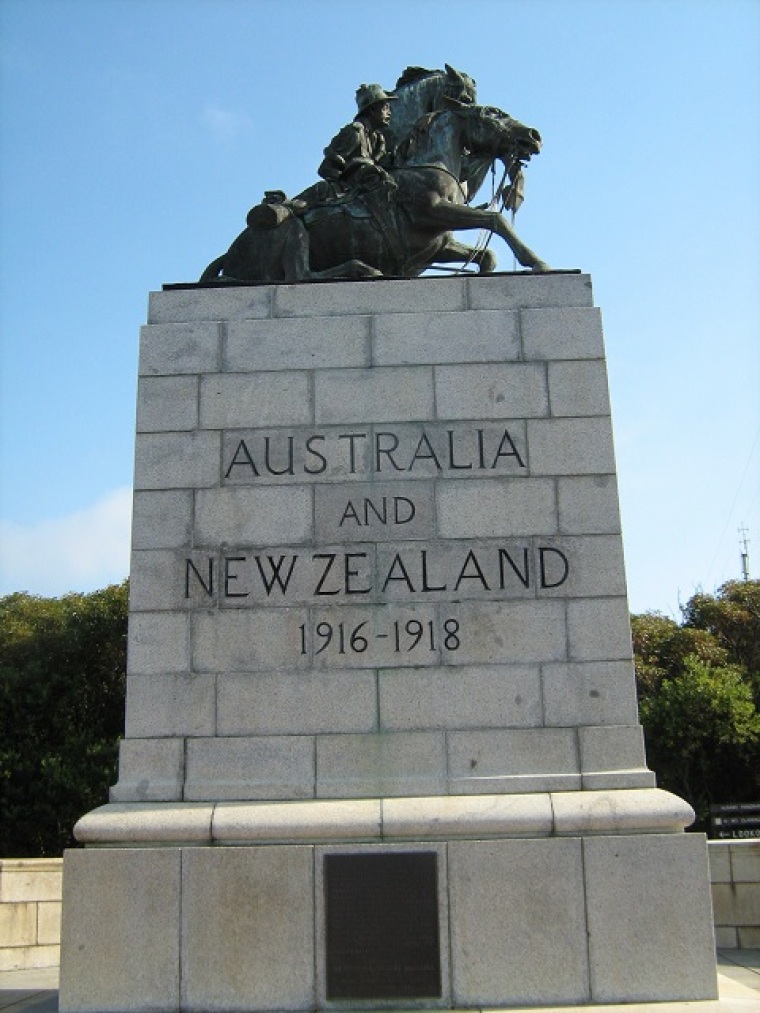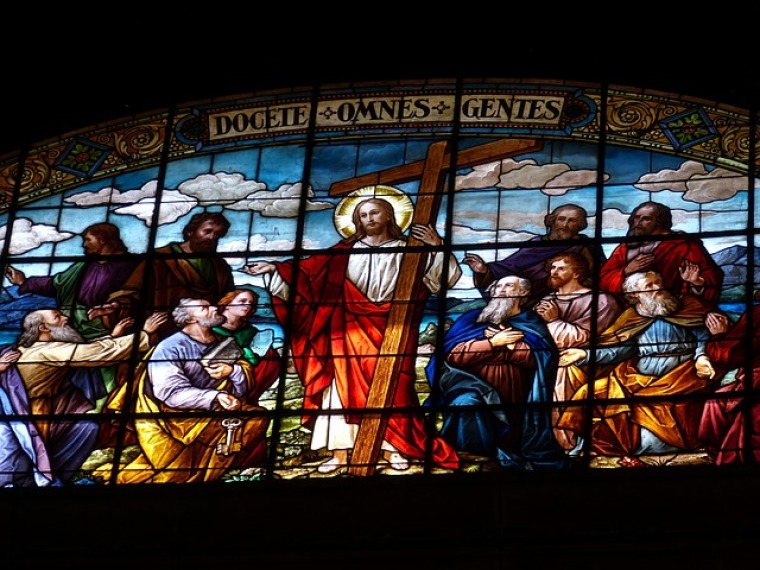

11.00am on the eleventh day of the eleventh month Australia remembers those who lost their lives in WWI, the Great War. It is therefore fitting to discuss what Australian's chant as 'Aussie, Aussie, Aussie, oi, oi, oi' has been known to be shouted on such solemn occasions.
'Aussie, Aussie, Aussie, oi, oi, oi' is a kind of a sporting icon for many Australians who can think of nothing more profound. But alas, there has been a call to ban it by Courier Mail journalist Rory Gibson.
Six years ago I wrote of this: Rory Gibson refers to it as the most boring, irritating, cringe-making chant in the history of crowd noise and he goes on to say that it was inflicted on the crowd in St Peter's Square at the Vatican by a bunch of Mary MacKillop yobs.
Rory Gibson wrote: "How utterly depressing that in a crowd made up of visitors from many nations gathered for a solemn ceremony, jingoistic bogans yet again show us up to be a country inhabited by ignorant boofheads."
One might also imagine the horror of it being shouted at 11.00am on the 11th day of the 11th month. He goes on to give a history of the chant, which originated from England with a different word; 'oggie, oggie, oggie, oi, oi, oi' and how a Melbourne couple, Greg and Diane Davies, registered the Australian slogan as a trademark in 2004.
Rory asks is this the best we can come up with? Many concur with with Rory Gibson's question and sentiment. But, I for one, could imagine our Aussie diggers shouting this chant with glee in those terrible dark days of WWI.
Australians might remember the signing off speech by then IOC President (the late) Juan Samaranch at the closing of the Sydney Olympics. He acknowledged this chant. I doubt whether he nor anyone else on the IOC quite 'exactly' knew what it meant.
This Aussie chant has become an honour. It was given to me at my 60th at the SCG on 6 January 2012 when cricket presented me a corporate box for the India Test recognising my 30 years in cricket ministry. We had 20 mission friends as guests.
So I wonder whether there might be an opportunity to promote an Australian Christian 'national chant' that might be voiced at any number of Christian events from across the denominational divide.

Indeed a national Christian sentence .......
The lyrics he refers to is "the Great South land of the Holy Spirit". Geoff Bullock penned these words in 1991. Most churches in Australia have sung this at one time or another.
My research indicated the 'symbolic origin' of the title of the song, comes from Pedro Fernandes de Queirós also known as Pedro Fernández de Quirós, (1565–1614) who was a Portuguese navigator best known for his involvement with Spanish voyages of discovery in the Pacific Ocean, including the 1605-1606 expedition which crossed the Pacific in search of Terra Australia.
The story is that this anciently referred to as terra australis incognita (Latin) - "unknown land of the south"? He referred to these words (400 years ago): La Austrialia del Espiritu Santo – Australia of the Holy Spirit. "Terra" in this instance was dropped.
These Spanish words were spoken by a spiritually minded Portuguese navigator with an Austrian king as his Spanish monarch on Pentecost Sunday, May 14 1606 — were then adjusted and published in English (and Spanish) in 1625 as Australia del Espiritu Santo and then changed again in Lieutenant James Cook's journal to Australia del Espiritu Santo in 1770.
We need clarity here. This was an expression of a man who had an understanding of how God's Spirit was somehow upon this strange south land that he himself had never cast his eyes upon. It could have been an expression of his Christian faith, or possibly a political statement claiming it for the Spanish King and his Spanish Catholicism.

Regardless, the pedigree is undoubtedly secure. Geoff Bullock's song captures the imagery and the spiritual power engaged here. So therefore, what words might be drawn from the song, that would take on as an acceptable 'Christian Chant' at Christian events, or indeed as a national sentence ......
It would require national significance, historical reflection and be diverse enough to be inclusive. One such national sentence might be: "The great south land, a harvest comes". The first part of this phrase has both national and historical components - "The great south land".
The second, inclusive part - "a harvest comes" - can apply to a host of events such as sports, cultural, national identity and expectant hope.
"The great south land, a harvest comes".

Dr Mark Tronson is a Baptist minister (retired) who served as the Australian cricket team chaplain for 17 years (2000 ret) and established Life After Cricket in 2001. He was recognised by the Olympic Ministry Medal in 2009 presented by Carl Lewis Olympian of the Century. He mentors young writers and has written 24 books, and enjoys writing. He is married to Delma, with four adult children and grand-children. Dr Tronson writes a daily article for Christian Today Australia (since 2008) and in November 2016 established Christian Today New Zealand.
Mark Tronson's archive of articles can be viewed at http://www.pressserviceinternational.org/mark-tronson.html